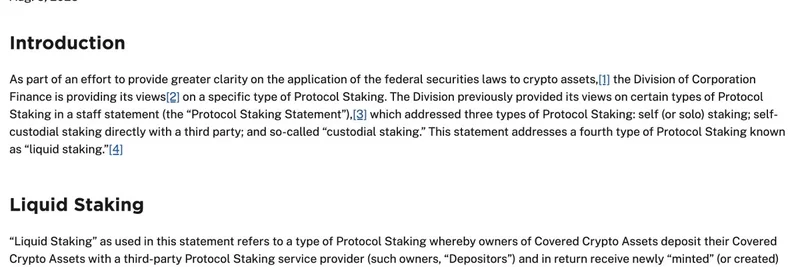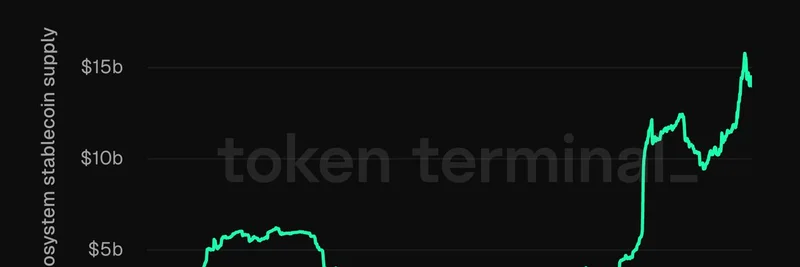The crypto world got a fresh dose of regulatory clarity this week, thanks to a tweet from @martypartymusic highlighting a new statement from the SEC's Division of Corporation Finance. Posted on August 12, 2025, the tweet shares the SEC's views on certain liquid staking activities, emphasizing that some decentralized, permissionless protocol-based liquid staking tokens in DeFi aren't considered securities. This could be a big win for innovators in the space, including those building around meme tokens that incorporate staking mechanics.
For those new to the term, liquid staking lets you stake your crypto assets—like ETH or other tokens—on a blockchain network to earn rewards, while still keeping your assets liquid. Instead of locking them up, you get a "receipt token" that represents your staked amount, which you can trade or use elsewhere in DeFi. The SEC's statement dives into this, focusing on what's called "Protocol Staking" in a decentralized setup.
The statement, dated August 5, 2025, builds on previous guidance and outlines four types of protocol staking: self (or solo) staking, custodial staking directly with a third party, so-called "custodial staking," and liquid staking. It's the liquid staking part that's grabbing headlines. According to the SEC, liquid staking involves depositing covered crypto assets with a third-party protocol staking service provider. In return, you get "Staking Receipt Tokens" that evidence your ownership of the deposited assets and any newly minted rewards.
Crucially, these Staking Receipt Tokens are issued on a one-for-one basis with the deposited crypto, allowing holders to maintain liquidity without withdrawing from staking. The SEC notes that these tokens can serve as collateral or participate in other crypto apps, but the staking activity itself doesn't alter the rights or obligations of the underlying assets. Holders can redeem these tokens for their original deposits plus rewards at any time, subject to any "unbonding" period.
This clarification is timely, especially as DeFi continues to evolve. For blockchain practitioners and meme token enthusiasts, it means more freedom to experiment with staking features without the looming fear of securities classification. Think about popular meme projects on networks like Solana or Ethereum that integrate staking— this could reduce regulatory hurdles and encourage more innovation.
The tweet links directly to the SEC's page (SEC Statement), where you can read the full details. It's a reminder that while the crypto landscape is still navigating regulations, steps like this are pushing toward a more defined path.
In the broader context, this aligns with ongoing discussions around how federal securities laws apply to crypto assets. By distinguishing liquid staking in decentralized protocols from traditional securities, the SEC is acknowledging the unique, permissionless nature of DeFi. For meme token creators, who often thrive on community-driven, fun mechanics, incorporating liquid staking could now be a safer bet to boost engagement and utility.
As always, this isn't financial advice—stay informed and consult experts. What's your take on this development? Does it change how you view staking in meme ecosystems? Drop your thoughts in the comments below.




